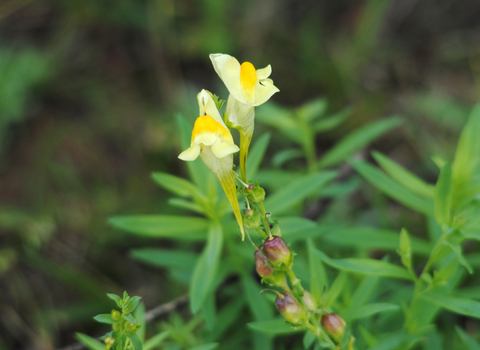
©Amy Lewis
Common toadflax
Look for common toadflax on waste ground and grassland, and along roadside verges and hedgerows. Its yellow-and-orange flowers are tightly packed on a tall spike and have distinctive 'spurs'.
Scientific name
Linaria vulgarisWhen to see
June to NovemberSpecies information
Category
Statistics
Height: up to 75cmCommon.
